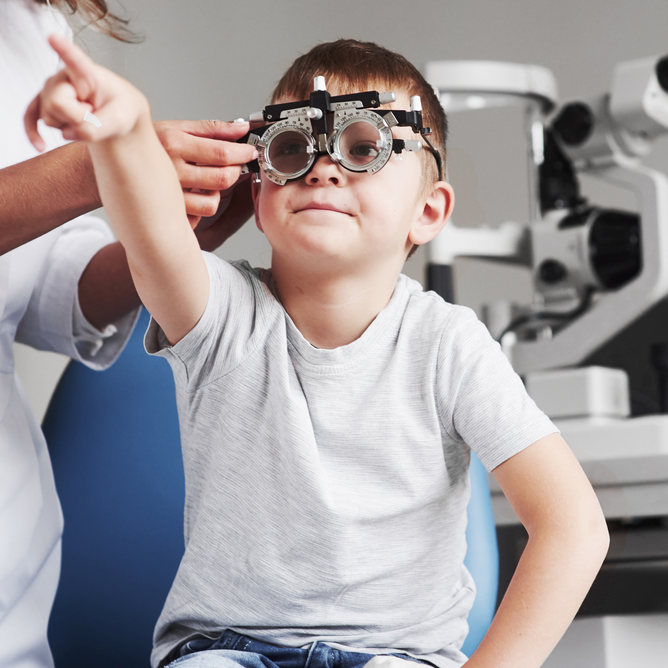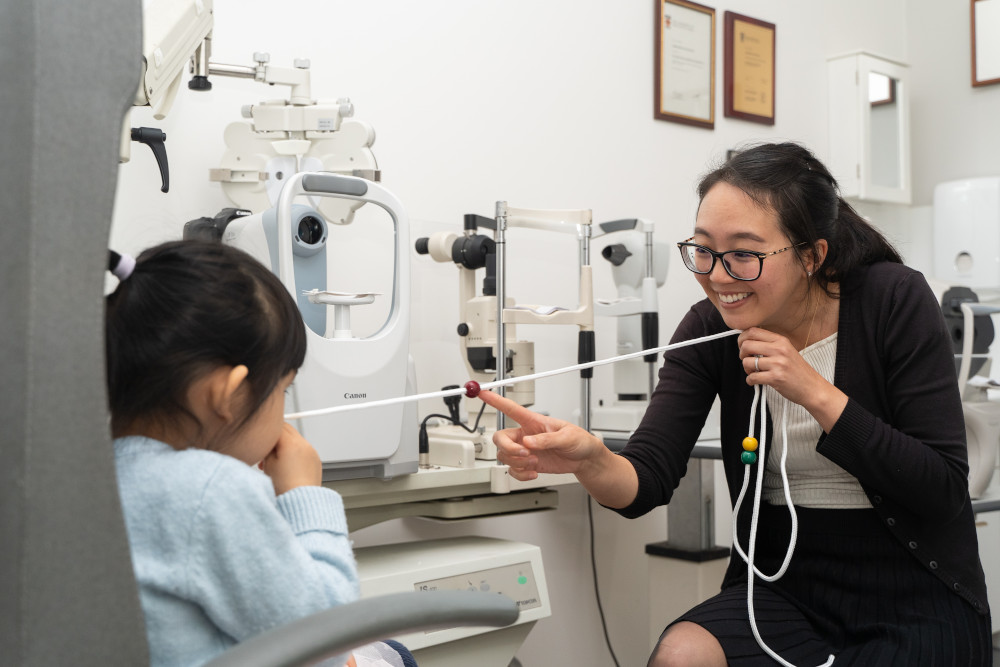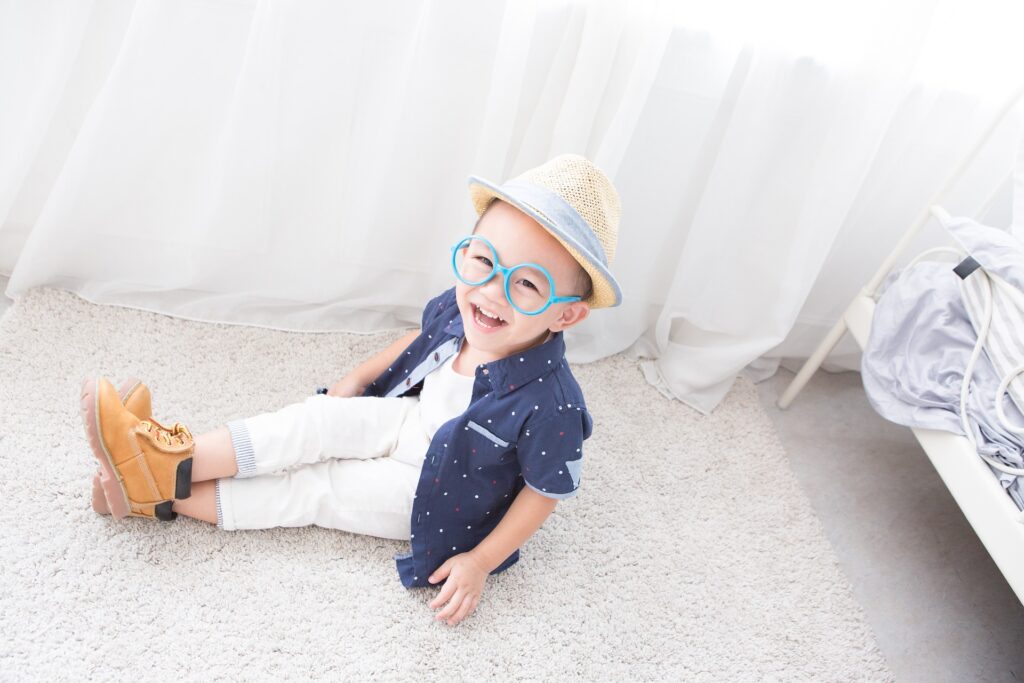Children's Eye Tests
As a parent, your child’s well-being is your top priority. At Concord Eyecare, we prioritise paediatric eye care and aim to provide the best vision for our young patients. We have a special interest in children’s eye tests and the dispensing of children’s glasses and contact lenses.
Why Does Children’s Eye Health Matter?
- Vision is crucial for 80% of learning activities.
- Early detection of vision problems prevents behavioral issues and supports better learning outcomes.
- Undiagnosed vision problems can lead to frustration in school and eye condition problems later in life.
Stages of Visual Development
- Infants (0-2 years): Vision assessments needed to detect any early signs of eye problems or developmental issues.
- Preschoolers (3-5 years): Eye exams strongly recommended to check for vision issues that could affect learning and development.
- Primary School-aged children (6-12 years): Regular eye exams necessary to monitor vision changes and address any issues that may affect academic performance.
- Teenagers (13-18 years): Continued monitoring of vision and eye health recommended, addressing issues such as myopia progression, and ensuring optimal vision for educational and extracurricular activities.


Why Choose Us?
- Optometrists with a special dedication to excellent children’s eye care.
- Diagnostic equipment and modern techniques to provide the latest in comprehensive young patient oriented eye exams.
- Optometry professionals with a strong record of delivering top-notch patient satisfaction.
What Can You Expect During a Children’s Eye Test?
- Child-friendly environment and engaging test procedures.
- Thorough testing of vision skills and detection of specific conditions.
- Detailed examination of the eye’s health and development progress.
Signs Your Child May Need an Eye Test
- Low hand-eye coordination and poor motor skills.
- Frequent eye rubbing.
- Poor focus and concentration.
- Unusual eye movements.
- Complaints of headaches or nausea.
- Squinting and moving closer to TV screens.
Common Visual Problems in Kids
- Short sightedness (myopia).
- Lazy eye (amblyopia)
- Crossed eyes (strabismus)
- Binocular coordination issues

Safeguard Your Child's Vision
Step 1
Book an appointment at Concord Eyecare.
Step 2
You and your child visit our clinic.
Step 3
We do an eye test, discuss the results and create a vision care plan.
Don’t let vision problems hold your child back. Book an eye examination with our experienced paediatric optometrists and ensure they have the clear eyesight they need to succeed. Your child deserves the best start in life — schedule their eye test today!
Frequently Asked Questions
Children should have their first comprehensive eye exam between 6 and 12 months of age, another between the ages of 3 and 5, and annually thereafter.
The optometrist will assess visual acuity, eye alignment, eye health, and focusing skills using child-friendly methods and equipment. The exam may include tests for color vision, depth perception, and eye coordination.
Explain the process in a simple and reassuring way, emphasizing that the tests are quick and painless. Bring a favorite toy or book to help them stay relaxed and comfortable.
Yes, in Australia, children’s eye exams are typically covered by Medicare, meaning there are no out-of-pocket expenses for eligible Medicare cardholders.
Yes, a child’s vision can change rapidly as they grow, so regular eye exams are essential to monitor and address any changes.
If your child needs glasses, the optometrist will provide a prescription and help select frames that fit comfortably and suit your child’s lifestyle and preferences.
Contact lenses can be an option for older children and teenagers who are responsible enough to handle them. The optometrist will advise based on the child’s maturity and needs.
Myopia should be monitored closely by an optometrist as it can progress with age, but early detection and various myopia control strategies can be implemented to help manage it.
Signs include difficulty distinguishing between certain colors or using incorrect colors when drawing. An optometrist can conduct specific tests for color vision.
Teenagers can experience nearsightedness, farsightedness, astigmatism, and eye strain from increased screen use and reading.
Vision therapy can be effective for issues like lazy eye, eye coordination problems, and certain focusing difficulties. An optometrist can provide a tailored program.
Schedule an eye exam to rule out vision problems as a cause of their difficulties. Proper vision correction can significantly improve their academic performance.
